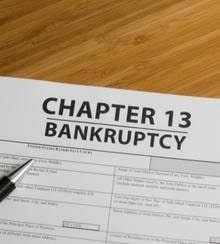How Can I Stop Wage Garnishments?
A wage garnishment is a court order given to your employer that requires him or her to withhold a portion of your paycheck to
give directly to your creditor. While states have the ability to place limits on how much income may be garnished, Georgia
follows federal law in this area. If you are having difficulties making payments, don’t hesitate to seek out assistance
from experienced wage garnishment lawyers.
Limits to garnishments
Federal law limits the amount creditors can order employers to
withhold at 25 percent of your disposable income, or the amount of income that exceeds 30 percent of the minimum wage. Your
disposable income is the amount you receive after your employer takes out federal and state deductions, such as taxes and Social
Security, and it is supposed to be enough to meet the basic necessities to support yourself and any dependents.
If your disposable income is not more than 30 times the minimum wage, your wage cannot be garnished. If your employer has multiple
garnishment orders for you, he or she still cannot take out more than a total of 25 percent of your monthly pay.
When is a court order not needed?
A court order for withholding part of your income for a creditor is not required for the following:
- Income taxes you have not paid
- Child support or arrears you owe
- Student loans in default
Can I stop my wage garnishments?
You can appeal your wage garnishments,
and how you do so depends on your creditor.
For example, if you owe federal taxes, you can file an appeal with the IRS. If you owe student loans, you can file a written request
with your local branch of the U.S. Department of Education. You can also choose to settle your debt by paying off your garnishments,
either in one lump sum or through the regular ordered payments.
Another option is to file for bankruptcy. Chapter 7 or Chapter 13 bankruptcy can provide you with a significant amount of financial
relief. However, it is not the best option for everyone. Consult with an bankruptcy attorney with knowledge of wage
garnishment in Georgia about what legal route you can take if you are in debt. Call DebtStoppers, Bankruptcy Law Firm & Assoc., LLC for a free consultation.


